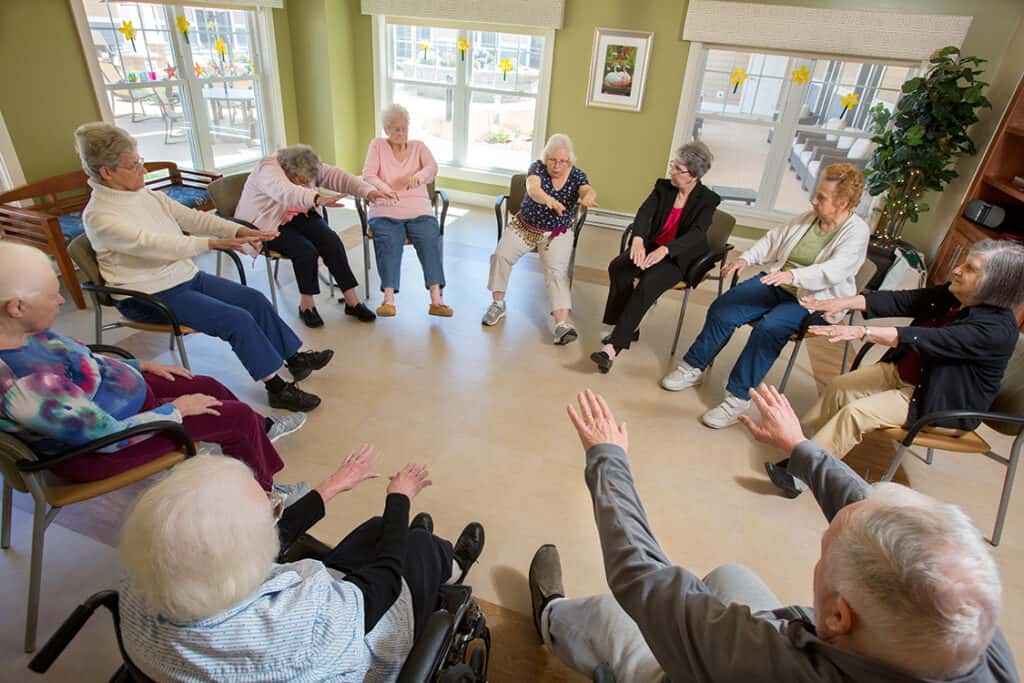Sanctuary Senior Living: A Haven of Convenience and Take Care Of the Elderly
Wiki Article
Creating a Safe and Encouraging Atmosphere: Memory Care Approaches for Senior Living
Producing a Safe and Helpful Environment: Memory Care Strategies for Elderly Living is an extensive overview that provides important insights and functional strategies for boosting the quality of life for people with memory impairment. This source aims to provide elderly living communities, caretakers, and medical care experts with the expertise and devices required to develop an atmosphere that advertises security, convenience, and psychological wellness. Guide checks out numerous aspects of memory treatment, consisting of understanding memory disability, creating a dementia-friendly setting, executing precaution, advertising involvement and socialization, and offering specific treatment and support. By utilizing evidence-based techniques and ideal practices, this overview equips visitors with the needed abilities to create a helpful and risk-free atmosphere that enhances the general high quality of life for people coping with memory impairment.Understanding Memory Impairment

The reasons for memory impairment can be diverse. Sometimes, it might be an outcome of all-natural aging procedures, where the mind's capacity to procedure and shop details progressively decreases. Various other reasons include neurodegenerative illness such as Alzheimer's and dementia, distressing brain injuries, strokes, and specific medical conditions or medications.
Understanding memory impairment is important for establishing efficient approaches to sustain people with this problem. It is important to identify that memory disability does not entirely affect memory itself but also impacts various other cognitive features such as interest, problem-solving, and decision-making. Furthermore, memory impairment can have psychological and psychological effects, bring about sensations of isolation, frustration, and complication.
In order to give suitable treatment and support for people with memory impairment, it is necessary to develop a risk-free and encouraging environment that promotes freedom, engages cognitive capabilities, and decreases stress and stress and anxiety. By comprehending the nature and sources of memory impairment, caretakers, healthcare professionals, and member of the family can develop tailored approaches to enhance memory function, enhance lifestyle, and preserve a sense of dignity and autonomy for those impacted.
Creating a Dementia-Friendly Setting
Designing a dementia-friendly setting involves executing certain alterations and adaptations to guarantee the security, convenience, and wellness of people with memory problems. Developing a physical space that promotes familiarity and decreases confusion is vital for people living with dementia. Simple modifications, such as clear signage and color-coded pathways, can help residents navigate their environments individually and decrease the threat of obtaining shed. Furthermore, integrating natural illumination and calming color pattern can produce a calming atmosphere and improve total health.One more essential facet of a dementia-friendly setting is integrating memory aids and signs. Aesthetic prompts, such as memory boxes or acquainted items, can set off favorable memories and assist people connect with their past. Presenting photos or personal tokens can likewise offer as conversation beginners and motivate social interaction among residents.

Implementing Precaution
To ensure the wellness of residents with memory disability, elderly living communities need to prioritize the implementation of efficient precaution. Memory treatment devices ought to be outfitted with various security attributes to reduce the danger of crashes and provide a safe setting for residents. One essential security step is the installation of handrails and get hold of bars in corridors, bathrooms, and other areas susceptible to drops. These assistive gadgets can assist homeowners maintain their balance and reduce the possibility of injuries. Furthermore, non-slip floor covering needs to be made use of throughout the facility to stop falls and slips.Another essential safety measure is the implementation of a safe and secure access system. This can consist of functions such as keyless entry, safety electronic cameras, and alarm systems to avoid unapproved accessibility and make sure that locals do not stray (sanctuary senior). Window and door locks should additionally remain in place to stop homeowners from leaving the facilities without supervision
Furthermore, it is vital to have a well-trained team that understand the one-of-a-kind requirements of individuals with memory problems. Team member must get training in dementia treatment and be well-informed concerning the procedures for handling emergency situations and preventing crashes. Normal safety and security drills and assessments need to be carried out to recognize prospective threats and address them without delay.
Encouraging Interaction and Socializing
Elderly living neighborhoods can boost locals' health and lifestyle by promoting engagement and socializing possibilities. Promoting involvement and socialization is necessary in memory care methods as it can aid improve cognitive function, psychological well-being, and general joy for seniors with memory disabilities.One reliable means to promote interaction and socialization is with structured tasks. These tasks should be tailored to the citizens' passions and abilities, guaranteeing they are engaging and satisfying. Team tasks such as art courses, songs therapy sessions, and group outings can supply possibilities for social communication and create a sense of belonging within the community.
Along with structured activities, it is crucial to develop rooms that encourage socialization. Typical areas must be welcoming and comfy, supplying possibilities for homeowners to collect and involve in conversations. Outside areas, such as courtyards or gardens, can likewise be designed to promote socialization and provide a calming environment for residents to get in touch with nature and each other.

Providing Specialized Care and Support
One necessary facet of memory treatment strategies for elderly living is the arrangement of specialized treatment and assistance that attends to the one-of-a-kind demands of people with memory impairments. Memory impairments, such as those related to Alzheimer's disease or dementia, can have a significant effect on an individual's capacity to accomplish everyday tasks and keep their total health. It is critical for senior living centers to have team participants who are trained in supplying specialized care for homeowners with memory problems.
Specialized care and support for people with memory problems concentrate on producing a encouraging and secure environment that advertises their self-respect, self-reliance, and lifestyle. This consists of applying structured routines, developing memory-friendly areas, and using memory aids, such as aesthetic hints or pointers. Additionally, personnel should have a deep understanding of the person's personal background, sanctuary senior choices, and capabilities to offer person-centered treatment.
Moreover, specialized care additionally involves giving social and emotional assistance to individuals with memory problems. This includes involving them in significant tasks, promoting social communications, and using therapeutic programs customized to their cognitive capacities. By supplying specialized care and assistance, senior living centers can enhance the general health and lifestyle for residents with memory disabilities, permitting them to deal with dignity and objective.
Conclusion
Finally, developing a encouraging and secure environment for seniors with memory disability needs recognizing their needs, developing a dementia-friendly area, applying precaution, promoting interaction and socializing, and giving specialized care and support. By utilizing these methods, elderly living areas can boost the lifestyle for people with memory problems and guarantee their wellness.Producing a Safe and Helpful Atmosphere: Memory Treatment Methods for Elderly Living is a detailed overview that uses useful understandings and functional techniques for enhancing the high quality of life for individuals with memory problems. The publication discovers numerous elements of memory treatment, including comprehending memory disability, creating a dementia-friendly atmosphere, executing security steps, promoting involvement and socializing, and supplying specific treatment and assistance. Memory disability can manifest in various kinds, varying from moderate forgetfulness to extreme memory loss that dramatically affects everyday performance.
It is necessary to acknowledge that memory impairment does not only impact memory itself however also influences other cognitive features such as interest, problem-solving, and decision-making.One necessary element of memory treatment methods for senior living is the stipulation of specialized care and assistance that attends to the distinct demands of individuals with memory impairments.
Report this wiki page